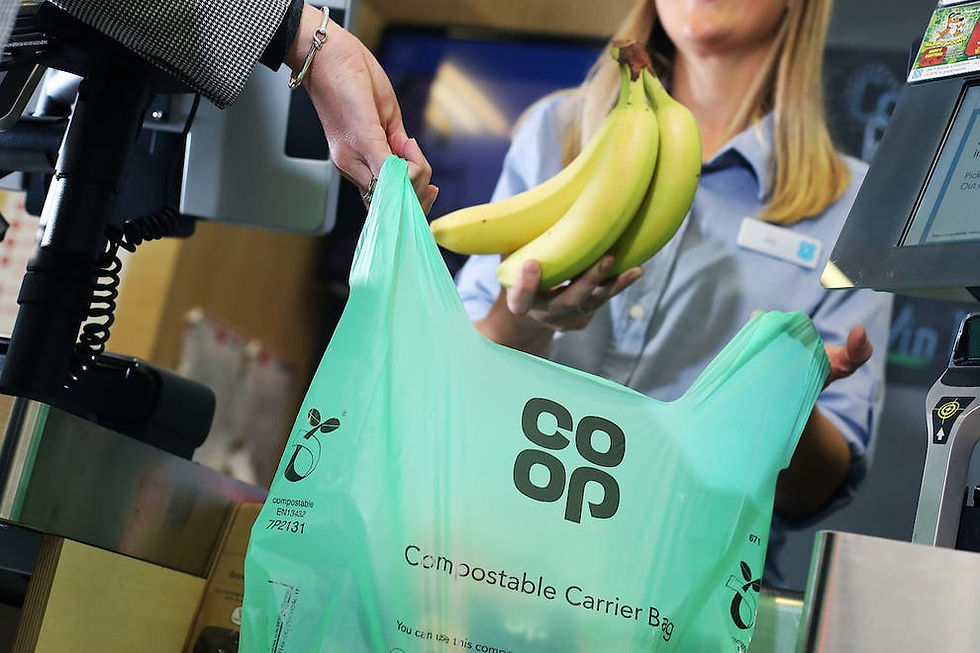Japan introduces charges for plastic bags from 1st July
- CT

- Jul 2, 2020
- 3 min read

From Wednesday, all retail outlets across the country are required to charge customers for the use of plastic bags. The new requirement is an attempt by the government to reduce the amount of plastic that ends up in the country’s rivers, forests, streams and, ultimately, surrounding oceans. Here’s a look at what it will mean for consumers and how it fits into the larger issue of reducing all forms of plastic waste. What was the motivation for creating the new rule? Domestic and international pressure to reduce plastic bag use in the nation had been growing for several years, while efforts on an international level to slow the amount of plastic waste flowing into the world’s oceans — estimated to total at least 8 million metric tons annually — had become the subject of international political concern. Political pressure on Japan to deal with the problem domestically was particularly intense prior to last year’s Group of 20 Osaka summit. During the summit the nation announced that, as of April 2020, stores would start charging for plastic bags — a starting date that was then moved to July 1. What does it mean for consumers? As of Wednesday, anyone who shops at convenience stores, supermarkets, department stores or shops where single-use plastic bags were previously distributed free of charge with purchases will now have to pay for such bags. Many stores have set a price at around ¥3 for a standard bag and more for a larger one. A large number of stores and even local governments prepared for the new rule by handing out complimentary reusable shopping bags in advance to encourage shoppers to use them. An increasing number of retailers also began asking customers if they had brought their own bag or needed a single-use plastic bag. Even before Wednesday, many businesses had begun charging customers for plastic bags, but these were individual, voluntary measures. Is the new rule expected to significantly reduce the amount of plastic used in the nation? Continued heavy use of plastic packaging for foods means that, even with the new rule, Japan will continue to generate large amounts of plastic waste overall. This is because single-use plastic bag garbage is estimated at about 200,000 tons a year, which is a very small percentage of the roughly 9 million tons of plastic waste produced here annually. But the rule is not without merit. The environmental damage the bags create, especially when they reach the ocean and begin decomposing into microplastics that enter the food chain, has long been a major international environmental concern. Thus, reducing plastic bags in Japanese waterways is now a top domestic priority as well. What efforts are being made to reduce other kinds of waste like plastic bottles? Last year, the central government announced a goal of reducing plastic waste by 25 percent by 2030. Plastic bottles in particular are a concern. The Council for PET Bottle Recycling estimated that 22.7 billion plastic bottles, or nearly 180 bottles per person, were shipped domestically in fiscal 2017. Currently, about 85 percent of the bottles are recycled, according to the council. In November 2018, the Japan Soft Drink Association announced it would work to raise the recycling rate to 100 percent by 2030. Will there be an eventual ban on the use of disposable plastic in Japan? A Cabinet Office survey conducted in August showed that 89 percent of respondents were concerned, and a third were very concerned, about the problem of plastic waste. When asked what kind of efforts should be made to address the problem, 56.3 percent said they would be willing to use eco-friendly alternatives and refuse plastic bags. Large percentages of respondents also suggested doing away with plastic spoon and straw use, or choosing recycled products. But there were no calls among survey respondents for a legal ban on the use of specific plastics, especially single-use plastics. As of last year, at least 90 countries had bans or severe restrictions on single-use plastic items like plastic bags. China has plans to ban nondegradable plastic bags in its major cities by the end of this year, and to extend the ban nationwide by the end of 2022. Japan’s official policy, however, remains a combination of regulatory incentives, to discourage further consumer use of single-use plastic items, and the promotion of recycling, including encouraging voluntary efforts by industries that use plastic to improve their recycling rates.





Комментарии